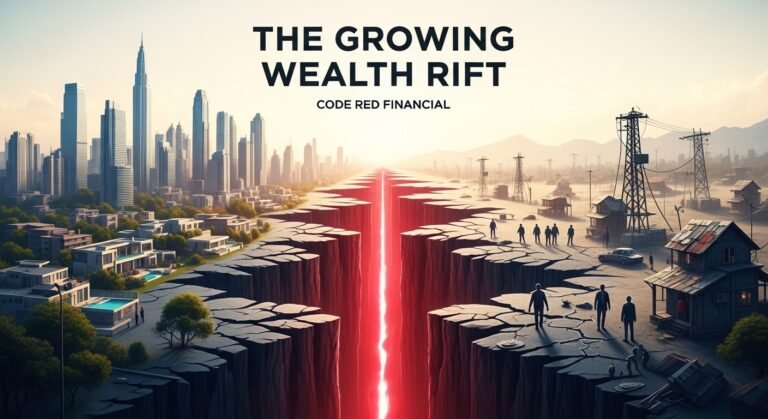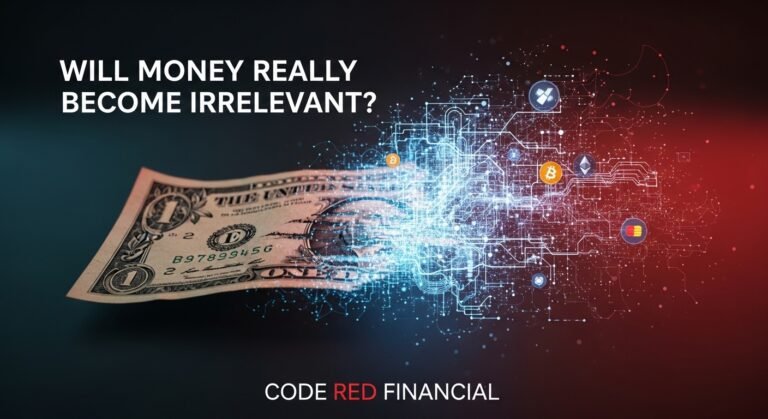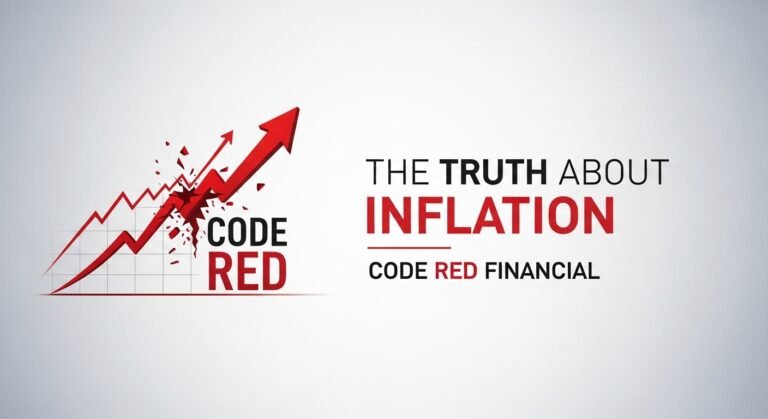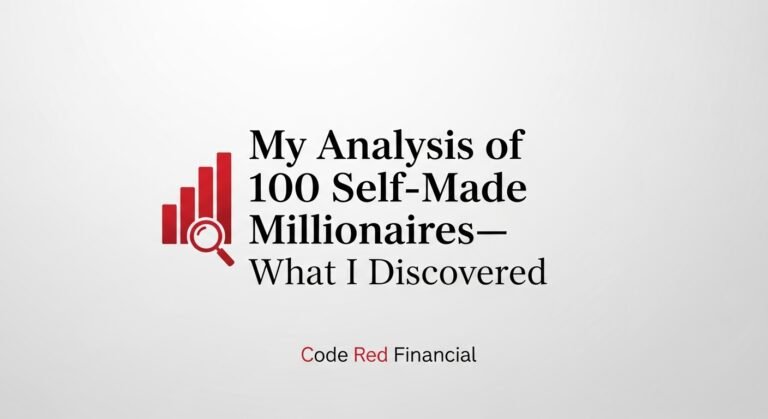
Do you remember a time when the world felt like a Tabula Rasa or simply put a blank canvas of endless possibilities, awaiting your boundless curiosity to be painted? When a shadow was a mystery to be explored, a new fact a profound revelation, and the word “why” was your most powerful tool? That was the realm of your childhood curiosity, an innate, fiery force that, sadly, often seems to fade into a gentle flicker as we trade the sandbox for the boardroom in exchange of what is expected of us in society as grownups. So, we relinquish many of the things that truly brought joy, belonging and fulfillment to satisfy the expectations.
We are taught to accumulate expertise, to specialize, and to speak with authority. We are applauded for our titles and years of experience. But what if the relentless pursuit of being an “expert” is actually the single biggest threat to our growth, fulfillment, and financial well-being?
The truth is, recapturing that spark of genuine inquisitiveness isn’t just a nostalgic indulgence—it’s the most potent strategy for consistent success, profound fulfillment, and the avoidance of catastrophic complacency in every area of your life, especially your finances.
The Philosophy of Perpetual Wonder: Embracing the White Belt
The journey from novice to master is a necessary one, but it is often accompanied by an unwelcome trade-off: the accumulation of technical knowledge for the loss of essential wonder. We gain answers but stop asking questions.
Shunryu Suzuki and the Limitless Possibilities
The definitive philosophical argument for this mindset comes from the revered Zen Master Shunryu Suzuki. In his timeless work, Zen Mind, Beginner’s Mind, he offered this profound observation: “In the beginner’s mind there are many possibilities, but in the expert’s, there are few.”
This statement is not an insult to expertise; it is a caution against the stagnation that expertise can breed. The beginner, or the novice, approaches every task, every piece of information, and every challenge with an openness that is fertile ground for discovery. Their mind is empty of preconceptions, ready to absorb and adapt. The expert, conversely, is often burdened by their own knowledge, constrained by established rules, and emotionally invested in the beliefs that have worked for them up until now.
The Martial Arts Paradigm: The White Belt Mentality
This concept is vividly illustrated in the world of martial arts through the philosophy of maintaining a “white belt mentality.”
The white belt, the entry-level student, is constantly humble. They know they know nothing, and therefore, they ask questions tirelessly. They embrace correction, they practice the fundamentals with focused intensity, and they are open to guidance from every source.
The black belt, the master, is lauded for their skill, but their true mastery lies not just in their technique, but in their ability to consciously fight the lure of arrogance. They must actively return to the basics, drill the fundamentals, and approach every training session as if they are still learning. The moment they assume they know “the way,” their growth ceases, and their skills begin to decay.
This childlike curiosity—the confidence of embracing what you know, coupled with the wisdom to know it is not all—is the sweet spot where competence meets ceaseless inquisitiveness. It is the engine that drives true, sustained innovation, not just in science, but in business, relationships, and, most importantly for us, in personal finance.
The Psychological Advantage: Fueling Productivity and Creativity
Losing your natural curiosity is like turning off the lights in the laboratory of your own mind. When the questions stop, the experiments end.
Curiosity as a Cognitive Stimulant
Research in cognitive psychology consistently demonstrates that curiosity is a powerful cognitive enhancer. When you are genuinely curious about a topic:
- Retention Improves: Studies show that when subjects are in a state of high curiosity, they are not only better at learning the specific information they are seeking, but they are also better at learning unrelated information presented at the same time. The curious mind is simply more receptive to all input.
- Dopamine Release: Curiosity triggers the release of dopamine in the brain’s pleasure and reward circuits. This chemical flood makes the act of learning feel intrinsically rewarding, transforming challenging tasks from chores into fascinating puzzles.
- Increased Attention: The feeling of a “knowledge gap”—the driving force of curiosity—is an uncomfortable state the brain is desperate to resolve. This creates an intense focus that cuts through distraction and allows for deep work.
I will admit that I am most productive, creative, and strategically sound whenever my inner child is allowed to reclaim some prominence in my life. Not enough to run rampant and disrupt my functioning in society, of course, but just enough to fully stimulate and harness my inquisitive nature. That willingness to play with ideas, to ask “what if?”, and to genuinely see things again with fresh eyes injects energy and authenticity back into routine tasks, turning the mundane into an opportunity for profound discovery.
The Innovation Equation: Connecting the Dots
Virtually every major breakthrough in history—from the wheel to the blockchain—has begun with a question that an “expert” probably would have dismissed as too simple, too crazy, or already answered.
- Steve Jobs wasn’t the first person to build a computer, but he was curious about why computers couldn’t be beautiful and intuitive.
- Elon Musk wasn’t the first to build a rocket, but he was curious about why they couldn’t be reusable and drastically cheaper.
Curiosity doesn’t accept the existing paradigm; it asks, “Why must it be this way?” and “What if we tried that?” It allows you to draw connections between seemingly disparate fields (e.g., applying lessons from biology to engineering, or principles of martial arts to investment strategy) that an expert, locked within their silo, would never see.

The Professional Crisis: When Expertise Becomes a Trap
In your career, an expert mindset is a fast lane to becoming obsolete. The world is changing too quickly for stagnation. The beginner’s mind is your necessary tool for career longevity.
Avoiding the Professional Blind Spot
Think of a seasoned professional—a doctor, a programmer, or an accountant—who refuses to update their methods. They might be able to function for a while, but eventually, their fixed mindset becomes a professional liability. This is the Professional Blind Spot—the inability to see the flaws in one’s own, long-established systems.
The curious professional, however, sees the need for constant, incremental learning. They are not threatened by new technology (AI, automation, new coding languages) but are eager to explore and integrate it. Their humility makes them adaptable, and their adaptability ensures their skills remain relevant and highly valuable.
The Art of the ‘Silly Question’
Often, the most challenging problems in a meeting or a project remain unsolved because everyone is afraid to ask the “silly question”—the fundamental inquiry that might expose an assumption everyone has been operating under.
A white-belt mindset empowers you to ask that question. Not only does it often unlock the solution, but it also creates a culture of psychological safety within your team. By showing your willingness to be vulnerable and curious, you signal to others that it’s safe to challenge conventional wisdom, leading to better outcomes for the entire organization.
The Code Red Financial Strategy: Curiosity as the Ultimate Consistency Tool
This is where the beginner’s mind moves from a philosophical nicety to a critical financial strategy—the core of smart, consistent wealth building, a concept central to the mission of Code Red Financial.
In the world of investing, an ‘expert’ mindset is one of the quickest and most dangerous routes to losing capital. The market does not care how smart you are, how long you’ve been investing, or how successful your past bets were.
1. Consistency Through Humility: The Anti-Dogma Approach
The complacent expert in finance relies on a strategy that worked yesterday. They become dogmatic, emotionally attached to specific stocks, sectors, or market beliefs. They develop an investor ego that whispers, “I already know everything I need to know about value investing (or growth, or crypto, or real estate).”
The curious investor, however, recognizes the market as a living, breathing, constantly evolving entity. They maintain a consistent, humble approach that asks, not demands:
- “What is the market trying to tell me now?” (Instead of: “The market is wrong, and my model is right.”)
- “What new variable have I not accounted for in this industry?” (Instead of: “I know this industry inside and out.”)
This humility ensures you don’t cling to losing positions out of pride and that you are always willing to re-evaluate your fundamental assumptions. This perpetual, disciplined re-evaluation is the bedrock of long-term consistency.
2. Mitigating Complacency: The Due Diligence Engine 🔍
Complacency in finance is born when you confuse past success with future certainty. It is the insidious belief that your current knowledge is sufficient to navigate the next decade. This is deadly in a world of accelerating change.
Childhood curiosity is your due diligence engine. It fuels a consistent, self-motivated desire to understand:
- Emerging Technology: Instead of dismissing AI, blockchain, or gene editing as fads, the curious investor asks: “How will this technology fundamentally change the economics of the companies I own?”
- Global Shifts: They don’t just read local news; they are curious about demographic shifts in Asia, regulatory changes in Europe, and commodity movements in South America because they know markets are globally interconnected.
- The “Why” Behind the “What”: Instead of just seeing a stock price drop, they are compelled to understand the underlying “why”—a leadership change, a supply chain issue, or a competitive threat.
This isn’t chasing every shiny object; it’s a persistent, systematic inquisitiveness that prevents you from being blindsided by shifts that the complacent expert either ignores or dismisses.
3. The Power of Diversification Through Exploration
An expert who only knows one field—say, only tech or only energy—will naturally be under-diversified. Their expertise creates a tunnel vision, making them hesitant to venture outside their comfort zone.
The curious beginner, unburdened by the need to be the “deepest expert” in any one area, feels comfortable exploring a wide range of asset classes and industries. They ask:
- “What can I learn from private credit?”
- “How does commercial real estate operate as a hedge?”
- “What is the difference between a sector ETF and a thematic ETF?”
This exploratory spirit naturally leads to a more robust, resilient, and appropriately diversified portfolio, making it less vulnerable to massive, single-point failures. Risk mitigation, in this context, is simply the financial dividend of being consistently curious.
Rekindle the Flame: Your Call to Perpetual Learning
Losing your childhood curiosity is not an inevitable consequence of aging; it is a passive habit of mind you can actively choose to discard. The greatest innovators, the most respected leaders, and the most successful, consistent investors are not those who claim to know everything, but those who retain the humility and eagerness of a perpetual student.
Your challenge today is to stop being an expert long enough to ask a question you think you already know the answer to.
- Look at your daily routine, your primary relationship, or your investment portfolio, and ask: “What if everything I know about this is only 80% correct?”
The missing 20% is where your next opportunity, your next breakthrough, and your next level of professional or financial freedom resides. Don’t just be an adult. Be a curious adult. The possibilities waiting for you are as endless as they were the day you first learned to walk.
Start asking ‘why?’ again. Your future depends on it.
Disclaimer: This article is for informational purposes only and should not be considered financial or investment advice. Investing in any of the mentioned passive income streams involves risk, and you could lose money. Before making any investment decisions, it is essential to conduct your own thorough research and consider consulting with a qualified financial advisor who can assess your individual financial situation, risk tolerance, and goals. The potential returns discussed are illustrative and not guaranteed. Market conditions, regulations, and other factors can significantly impact the performance of any investment or business venture.





